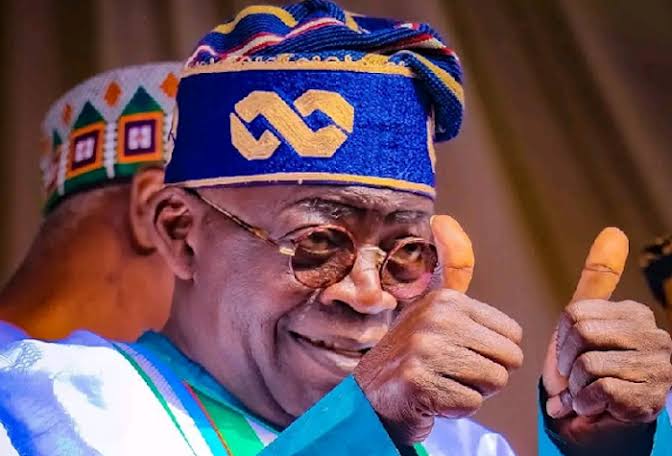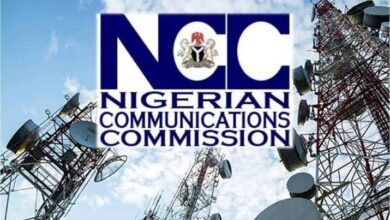OPINION: President Tinubu Sets $1trn GDP Growth In Three Years

Encumbered by the biting economic reality that have taken a heavy toll on the welfare of Nigerians, and particularly, the untamed free falling of the Naira immediately after reunification of the exchange rate by the government, President Bola Tinubu is targeting a $1trn gross domestic product (GDP) within the next three years. He is targeting this objective with his ongoing economic reforms aimed at repositioning the economy.
The President at the inauguration of his cabinet had unveiled an-8 point economic agenda with priorities on food security, economic growth, job creation, access to capital – importantly, consumer credit; improved security, provision of enabling playing field for people and companies who operate in the economy, rule of law, and fight against corruption.
He also promised an all-embracing inclusiveness, focusing particularly on youths and women.
He also promised a new Central Bank of Nigeria that will be thoroughly professional, a catalyst for growth, and a stickler to its constitutional mandate, maintaining price and financial system stability away from the muddled interlope of fiscal responsibilities.
Mr. Olayemi Cardoso, the CBN Governor, affirmed this during his submission at the National Assembly. He told the legislators that efforts were ongoing to refocus the economy and the Central Bank of Nigeria for an overall economic rebirth.
He said the federal government has fashioned fiscal reforms and growth targets that would make the feat attainable within the next three years. An ambitious plan that hopes to catapult the economy from its current Gross Domestic Product (GDP) of $450.
He said a study of emerging markets’ macro-economic indices which particularly noted Nigeria’s economic trajectory, given faithful implementation of the ongoing economic reforms attest to it. With its youthful population and natural resources, aptly captured by the Minister of Communication and Digital Economy, Bosun Tijani in his 31- page document said, “in a world where digital transformation and innovation is fast becoming a catalyst for economic progress, we are at a critical moment as a nation in our journey towards a more inclusive, and prosperous future. The intersection of a strong digital economy and our innovative and youthful population presents us with a unique opportunity to chart a course towards prosperity, inclusion, and global relevance”.
Other growth facilitating ministries and agencies like the Ministries of Industry, Trade and Investment, Science, Innovation and Technology, Labour and Employment, Gas Resources, Foreign Affairs, Marine and Blue Economy, Power, Justice, and Tourism should also come out with employment and wealth enhancing/generating policies to make this objective a reality. While agencies like Nigeria Investment Promotion Council, Nigeria Export Promotion Council, Corporate Affairs Commission, Bank of Agriculture, and Bank of Industries to mention few should live up to their fiscal responsibly mandates to facilitate this task. It is doable.
In achieving the objective, may be, was the creation and renaming of some ministries and agencies, including appointments of new helmsmen to pilot the affairs of some revenue generating agencies such as FIRS, CAC, and the Taiwo Oyedele Tax Reform Committee. The actions were pointers to achieving this objective.
Cardoso had explained that the projection is achievable if the study of the economies of Brazil, Russia, India, China, and South Africa (BRICS) and Mexico, Indonesia, Nigeria, and Turkey (MINT) countries with similar populations and developmental characteristics is anything to go by.
He continued, “given this scenario, a refocused CBN, (sticking to its mandate) will better serve Nigeria through monetary policy interventions and advisory roles that will sustain the implementation of the administration’s fiscal proposals”.
However, to achieve these laudable objectives the CBN Governor said the lines between monetary policy and fiscal intervention must be clearly delineated. He noted that, “much had been said of past CBN’s foray into development financing, such that the lines between monetary policy and fiscal intervention were blurred”. Therefore, in refocusing the CBN to its core mandate, there is a need to pull it back to mere advisory role that supports economic growth.
The Bank, he promised, will now act as a catalyst in the propagation of specialized institutions and financial products that support emerging sectors of the economy. “It should facilitate new regulatory frameworks to unlock dormant capital in land and property holdings,’’ he said.
He listed other roles the CBN under his watch would be – accelerating access to consumer credit and expansion of financial inclusion for the masses, de-risking instrumentation to increase private sector investment in housing, textiles and clothing, food supply chain, healthcare, and educational supplies.
Cardoso said he would exercise the convening power of the CBN to bring key multilateral and international stakeholders together to participate in government and private sector initiatives.
The Governor however admitted that despite this envisioned task, the CBN does not possess the magic wand to be waved at Nigeria’s current economic realities as the problems facing the Bank are enormous and complex, but the Bank under his watch will do all that is necessary to turn around the fortunes of the Bank and the Nigeria economy in general.
Chisom Adindu writes from Umuahia, Abia State.






